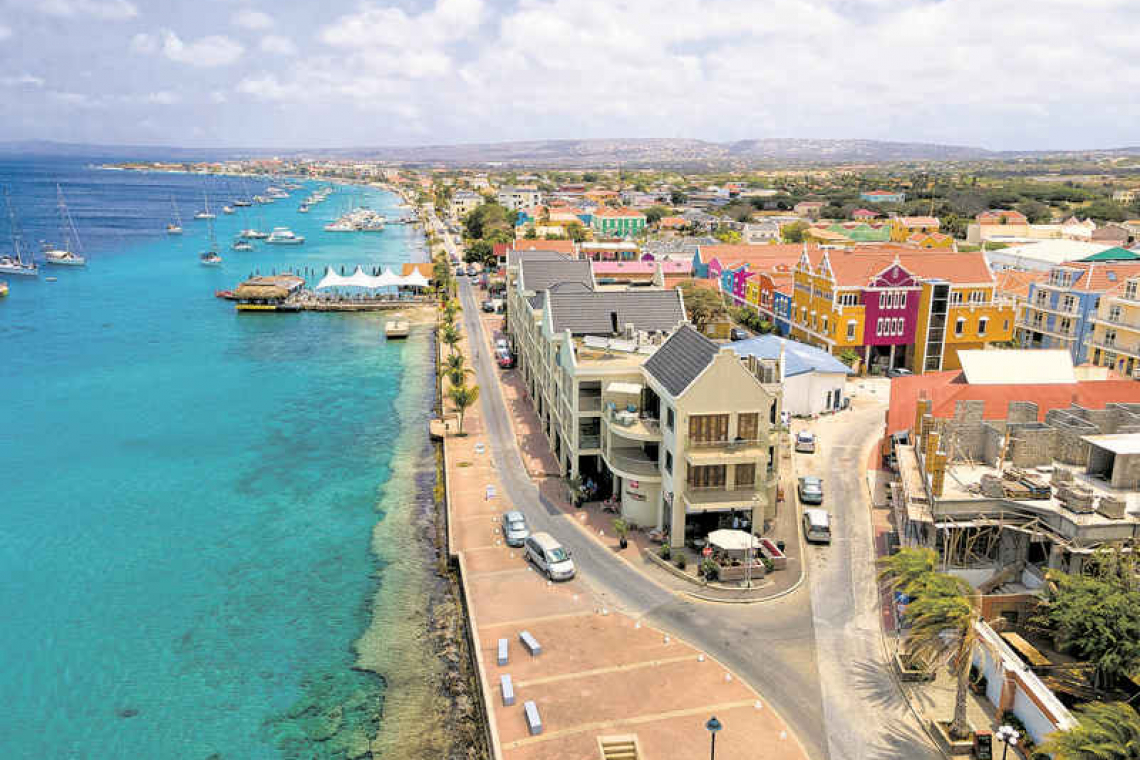Kralendijk, Bonaire
THE HAGUE--The Dutch government last week decided to again extend the economic support and recovery package for Bonaire, St. Eustatius and Saba. The measures of the so-called emergency package 4.0 for the Caribbean Netherlands will be valid until mid-2021.
In a letter he sent to the Second Chamber of the Dutch Parliament last Friday, State Secretary of Home Affairs and Kingdom Relations Raymond Knops explained that extending the package for the three islands was justified.
“The current economic situation of the Caribbean Netherlands remains worrisome,” he stated, noting that the strict measures for incoming traffic combined with the worldwide strong decrease of travel movements resulted in merely a fraction of the regular number of tourists visiting the islands.
Bonaire estimated that tourism for the first months of 2021 was 85 per cent lower when compared to the same period last year. St. Eustatius and Saba have been closed for almost a year and with good reason, due to the limited health care capacity. This has resulted in a very number of tourists.
“It is expected that economic recovery will only take place after tourism increases. The tourism high season (December-March), during which period a large part of the money is made, can be considered lost,” stated Knops.
The state secretary clarified that all people on the islands should be vaccinated by June 1, the start of the hurricane season. “However, this doesn’t mean that immediately all incoming travel measures will be relaxed,” he added. The islands have already indicated that, once all residents have been vaccinated in two rounds, it is the intention to (gradually) re-open for visitors.
Knops stated that the point of departure remained that a similar approach was implemented for the islands as for the Netherlands. “Following the Netherlands systematics in principle works good for Bonaire, St. Eustatius and Saba, because many support measures correspond with the necessary compensation. At the same time, the specific social-economic context needs to be taken into account, including the dependence on the tourism sector.”
The temporary subsidy regulation wage costs and income loss, the subsidy regulation compensation fixed costs, and the deferral of payment of taxes will be extended through the second quarter of 2021.
Under these measures, employers with at least a 20-per-cent loss of turn-over can receive a subsidy of up to 80 per cent of the maximised day wage. Self-employed entrepreneurs can receive a subsidy of up to 80 per cent of the legal minimum wage. And, dismissed employees who are out of work due to the corona crisis, can receive 80 per cent of their last salary.
New in the extended 4.0 emergency package is the regulation that entrepreneurs receive support to expand or restart in a situation where starting their business is unprofitable at this time. By having the subsidy continue, the entrepreneur can make a speedier restart which means they can be ready when tourism picks back up.
To support businesses in the tourism sector, the Dutch government increased the subsidy percentage for the fixed costs compensation to 85 per cent for employers in the Caribbean Netherlands that have been suffering a turn-over loss of at least 30 per cent. Also, the maximum of the fixed costs compensation subsidy will be increased from US $99,000 per quarter to US $400,000 per quarter.
Furthermore, the deferral of the payment of taxes will be deferred to July 1, meaning that the repayment of taxes will start three months later, on October 1. The public entities Bonaire, St. Eustatius and Saba have, in line with the municipalities in the Netherlands, received compensation in 2020 for their loss of income.
Knops said he has asked the Committee for Financial Supervision CFT to give advice on the expected loss of income and the additional costs they had due to the corona crisis, for example in the area of public health and maintaining law and order. Based on this advice, a decision will be taken how much compensation the islands get this time.
In his letter to Parliament, Knops also mentioned the enormous impact that the corona crisis has on the community and the economy of the islands. He noted that the most important economic pillar has largely crashed, namely tourism, and that other economic activities, such as Saba University School of Medicine, have been hit hard.
“The Dutch government is aware that the current situation heavily weighs on the shoulders of employees and employers in Bonaire, St. Eustatius and Saba. Those who lost their job because of the corona crisis, often fall back to a relatively low level of existence, also compared to the Netherlands,” the state secretary said.
“With this support and recovery package, the Dutch government will keep supporting entrepreneurship and jobs, with an eye on the social-economic context of the islands. The Caribbean Netherlands will be involved in the Dutch economic recovery policy, whereby a connection is sought with the economic and social circumstances, and perspectives,” stated Knops.







